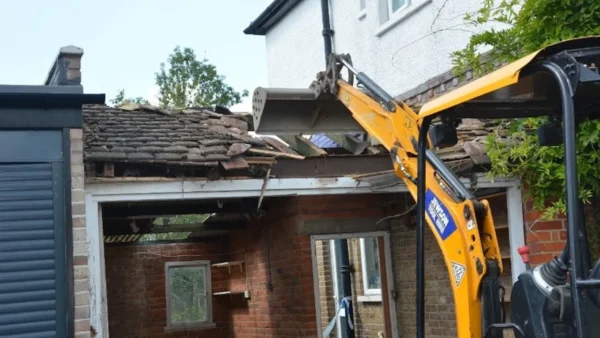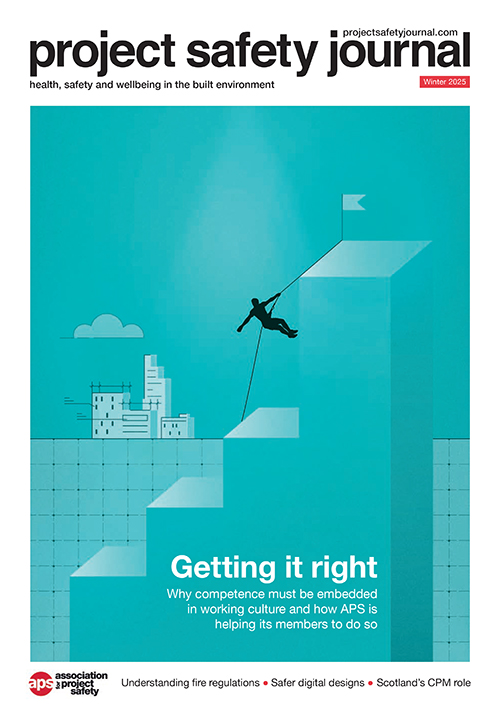
More than one in four (27%) built environment stakeholders are still underprepared for the changes that the new building safety legislation has brought to the industry.
That’s the finding of a recent survey conducted by leading construction and property managing consultant, RLB UK and leading digital information platform, Operance.
“Everything has changed but nothing’s changed” was one sentiment at the roundtable held by RLB and Operance with key stakeholders across the building safety ecosystem following the survey. They discussed the impact of the secondary legislation of the Building Safety Act coming into effect.
Key findings of the survey were:
- One in four or 27% of the industry were still completely unprepared for the resulting changes, with 23% still feeling that the industry has yet to catch up with these changes.
- 95% of those surveyed said that they were aware of the level of competence required by stakeholders involved in the built environment, but the roundtable panellists expressed the view that there was still a challenge to understand and define what being competent means.
- Nearly a third (32%) of respondents to the survey also felt that the industry did not have enough ‘competent resource’ to deliver the new building safety regime.
- A third of all participants believed the industry has the right digital infrastructure in place to deliver the new regulations and 86% believe that AI (artificial intelligence) will play a fundamental role in building data management and security in the future. However, the roundtable participants saw the biggest challenge to the legislation as resource – whether that was a skilled workforce or investment.
Rountable participants
The RLB and Operance roundtable was chaired by RLB’s head of industry and service insight, Paul Beeston, with the following participants:
Samantha Mepham National Head of Health & Safety Services, RLB UK
Scott Pilgram Chief Product Officer, Operance
Gary McCormick Business Analyst, Sovereign Network Group
David Jones Director of Education & Training at ICM, Head of Compliance and Competence at NAADUK and Chair of Construction Industry Council London & South-East Region.
Sun-mee Ban Principal Design Manager, Wates Residential
Chris Tongue Director, C80 Group.
The findings were supported by the roundtable consensus that while the industry was pivoting and preparing for the application for higher-risk buildings, the depth of the legislation was still reverberating across the industry.
With more than 1,000 registered building inspectors having left the industry, there was recognition that myriad stakeholders, from those in local authority Building Control teams through to architects and contractors, were struggling to adjust to the changes.
Sun-mee Ban, principal design manager at Wates Residential, said: “We are at the beginning of a journey on which we will learn from each other. We know the best approach is to collaborate as an industry, and at Wates we are more than happy to share our own experience and to collaborate with our peers in the pursuit of the best possible practice.”
The challenge of the Golden Thread
The roundtable also found that there were challenges in managing the information legally required due to a lack of a joined-up system across the building lifecycle, and that the golden thread was still being interpreted in different ways and education of what information was needed was still essential.
There was recognition that there was a balance at play. On the one hand, the Building Safety Regulator was promoting a ‘Be Curious’ strategy; on the other hand, there was a lack of specific guidance on required information.
Samantha Mepham, national head of health and safety services at RLB, said: “I think there are still some uncertainties around how much it’s going to cost to go through a gateway and how long it’s going to take because the regulation hasn’t really been tested yet. I think the solution is to go in with your eyes open and be prepared.”
Competency: understanding or availability of resource?
Although 95% of those surveyed said they were aware of the level of competence required by stakeholders in the built environment, the panellists felt there was a challenge in understanding and defining what being competent means, and what ‘good’ looks like.
It was acknowledged that it will take a few years into the legalisation to realise the boundaries and responsibilities that come with it. Nearly a third (32%) of respondents to the survey also felt that the industry did not have enough ‘competent resource’ to deliver the new building safety regime.
“Competency once you go into it in finer detail, is still quite a grey area,” said Scott Pilgrim, chief product officer at Operance.
Is digital an enabler of cultural shift?
The roundtable explored whether digital solutions could facilitate the culture shift needed with the RLB and Operance survey finding that a third believed the industry has the right digital infrastructure, and 86% believing that AI will play a fundamental role in building data management and security in the future.
The roundtable participants agreed that although digital platforms would help that cultural shift, the biggest challenge was resources, whether that was a skilled workforce or investment. Larger organisations with more resources were being more proactive in training teams and implementing digital processes, while some smaller consultants, which do not have rapid model capability, were being excluded from the procurement process as a result.












